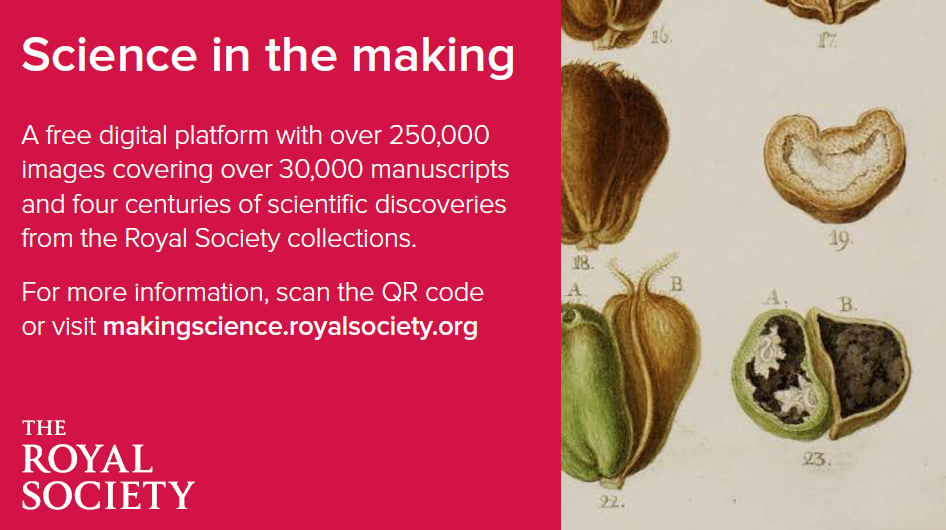John Perkins
We were very saddened to learn that John Perkins, SHAC Treasurer from 2007 to 2013, has passed away recently. John helped transform the Society’s activities during his tenure as Treasurer, introducing our grants scheme, co-founding the Oxford History of Alchemy and Chemistry Seminar Series and bringing together the series of conferences on Sites of Chemistry, 1600-2000. This conference series investigated the wide and diverse range of physical spaces and places where chemistry has been practised and led to several special issues of Ambix. John will be greatly missed by all who knew him. An appreciation of John’s life and work will appear in Ambix at a later date.
Ambix Edited Collection
A new Edited Collection is available open access through July, in conjunction with the 13th International Conference on the History of Chemistry held in Vilnius, Lithuania: https://www.tandfonline.com/journals/yamb20/collections/Centres-and-Peripheries-of-Chymical-Knowledge
Centres and Peripheries of Chymical Knowledge: Tracing Traditions of Alchemy and Chemistry in Eastern Europe
From the patronage networks of Rudolph II to the military campaigns of World Wars I and II, chymical knowledge was highly sought after in Eastern Europe, especially as a means to exert political power. The articles featured in this collection trace historical evidence of Eastern European chymical traditions, from a fourteenth-century Bohemian alchemical manuscript to twentieth-century global approaches to chemistry, to illustrate the mutual influence of Western and Eastern European chymical knowledge exchange. The insularity of Eastern European science before the establishment of the port of Archangel was not intentional but forced by feuding neighbouring lands. Ivan the Terrible attempted to create a Moscow medical school, but the Western European instructors he tried to bring in were blocked by the Danes and Swedes. The establishment of the port of Archangel in 1553 expedited cross-cultural chymical exchange between Eastern and Western Europe. As a result, the Russo-English trading organization Muscovy Company formed in 1555. By the 1620s, Tsar Mikhail Romanov had succeeded in forming the Apothecary Chancery at his court in Moscow. While there has been a history of Eastern European monarchs importing courtly alchemists from the West, including both John Dee (1527-1608) and his son Arthur Dee (1579-1651), many influential chymical practitioners were born and worked in Eastern Europe—such as Polish alchemist Michael Sendivogius (1566-1636), Hungarian Janos Banfihunyadi (1576-1646), Mikhail Vasil’evich Lomonosov (1711-1765) of St. Petersburg, Russian born chemists Nikolai Nikolaevich Zinin (1812-1880) and Dmitrii Ivanovich Mendeleeve (1834-1907), as well as many notable Soviet chemists of the twentieth century.
Conversations on Chemistry
Through its Conversations on the History of Chemistry, the CHCMS aims to start a discussion around the future of the history of chemistry and the molecular sciences. How do historians of chemistry select their objects of inquiry and what are the tools and methods they use to study the past? How have they seen their specific methods and fields evolve among other examinations of scientific endeavours and how do they view the future of the field? Details of the next conversations are below.
The first few roundtables will take place on Zoom in the coming two months. Please register here to receive the links and attend. For any other questions, feel free to contact the CHCMS secretary Sarah Hijmans at sarahnhijmans@gmail.com.
Conversation 2. The history of chemistry and its audiences
1 June 2023, 1-2 pm UTC (6-7 am PT/9-10 am EST/3-4 pm CEST/10-11 pm JST)
· Philip Ball (Freelance science writer)
· Jesse Smith (Director of Curatorial Affairs, Science History Institute)
· Annette Lykknes (Historian of Chemistry and Professor of Chemistry Education, Norwegian University of Science and Technology)
Conversation 3. Food, toxicity and the life sciences
15 June 2023, 1-2 pm UTC (6-7 am PT/9-10 am EST/3-4 pm CEST/10-11 pm JST) (TBC)
· José Ramón Bertomeu Sánchez (Professor, López Piñero Institute for the History of Medicine and Science, University of Valencia)
· Paulina Sophie Gennermann (Postdoc, Institute for History and Ethics of Medicine, Heidelberg University)
· Victoria Lee (Associate Professor, Ohio University)
Conversation 4. Resources, energy and environment
29 June 2023, 1-2 pm UTC (6-7 am PT/9-10 am EST/3-4 pm CEST/10-11 pm JST)
· Marcin Krasnodębski (Assistant Professor, Institute for the History of Science, Polish Academy of Sciences)
· Cyrus Mody (Professor in the History of Science, Technology, Innovation, Maastricht University)
· Tristan Revells (Postdoc, Tsinghua University)
Best regards
Various Officers of SHAC!

